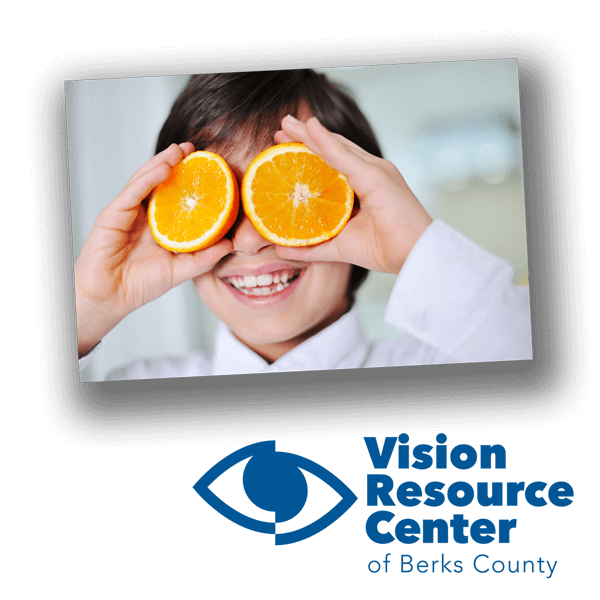May is Healthy Vision and Ultraviolet Awareness Month
News Release from American Academy of Ophthalmology
Taking Simple Steps Can Help Protect Your Sight
Approximately 37 million adults in America have age-related macular degeneration, cataract, diabetic retinopathy, or glaucoma, all of which can cause visual impairment or blindness, according to the National Eye Institute (NEI).[i] However, recent studies show that making healthy choices and getting regular eye exams can help reduce a person’s risk of vision loss. In support of NEI’s Healthy Vision Month in May, Vision Resource Center of America and the American Academy of Ophthalmology are encouraging everyone to take charge of their eye health and preserve their sight by following some simple tips.
Live a healthy lifestyle.
Eating a nutritious diet, maintaining a healthy weight and not smoking can lower your risk of eye disease. Foods that boost eye health include dark green leafy greens, cold water fish and citrus fruits. A study recently published in the journal Ophthalmology showed that a diet rich in vitamin C can cut the risk of cataract progression by nearly a third.[ii] Other research shows that smoking doubles the risk of the eye disease age-related macular degeneration, is linked to cataracts, and worsens dry eye.
Know your family history.
Certain eye diseases can be inherited. If you have a close relative with macular degeneration, you have a 50 percent chance of developing the condition. In addition, a family history of glaucoma increases your chances of developing the condition by four to nine times. So talk to your family members about what eye conditions they have. It can help you and your eye care professionals evaluate whether you may be at higher risk.
Get a dilated eye exam.
Many eye diseases may have no symptoms in their early stages. A dilated eye exam is the best way to detect eye diseases so they can be treated as soon as possible to help prevent vision loss. The Academy recommends that adults have a baseline comprehensive eye exam with an ophthalmologist – a physician specializing in medical and surgical eye care – by the time they turn 40. This is when age-related eye changes often begin to occur. People who are 65 and older should get an eye exam every one to two years. Those with chronic conditions such as diabetes or high blood pressure or known eye diseases may need to go earlier and more often.
Wear sunglasses.
Over time, exposure to UV rays from the sun can increase your risk of cataracts, certain cancers and growths in or around the eyes. When choosing sunglasses, pick ones that block out at least 99 percent of UV rays. A wide-brimmed hat offers great additional protection as well.
Use protective eyewear to prevent injuries.
Roughly a third of all emergency room visits for eye-related issues stem from traumatic eye injuries, according to a recent study in the journal Ophthalmology.[iii] To help prevent these injuries, wear the right protective eyewear when doing activities that could cause eye injuries, such as home repair, garden work and sports.
“People don’t often realize that simple, everyday actions can help them preserve their vision well through their golden years,” said Rebecca J. Taylor, M.D., clinical spokesperson for the American Academy of Ophthalmology. “We encourage everyone to take these steps in order to keep their eyes healthy.”
To learn more ways to keep your eyes healthy, visit the American Academy of Ophthalmology’s public information website at www.aao.org/eye-health.
About the American Academy of Ophthalmology: The American Academy of Ophthalmology is the world’s largest association of eye physicians and surgeons. A global community of 32,000 medical doctors, we protect sight and empower lives by setting the standards for ophthalmic education and advocating for our patients and the public. We innovate to advance our profession and to ensure the delivery of the highest-quality eye care. Our EyeSmart® program provides the public with the most trusted information about eye health. For more information, visit www.aao.org.
[i] https://nei.nih.gov/eyedata/adultvision_usa
[ii] Genetic and Dietary Factors Influencing the Progression of Nuclear Cataract, Yonova-Doing, et al, Ophthalmology, article in press March 2016.
[iii] Eye-related Emergency Department Visits in the United States, 2010, Vaziri, et al. Ophthalmology, April 2016.

